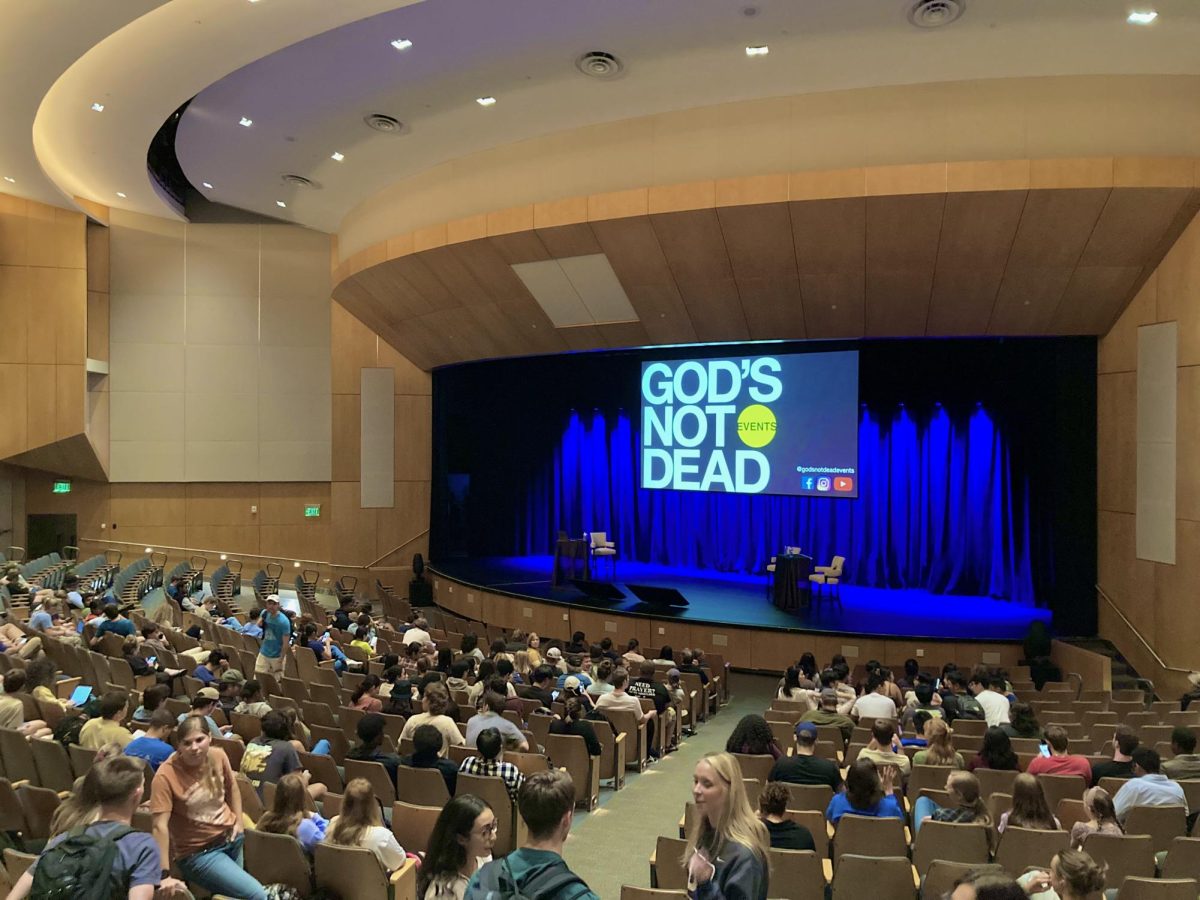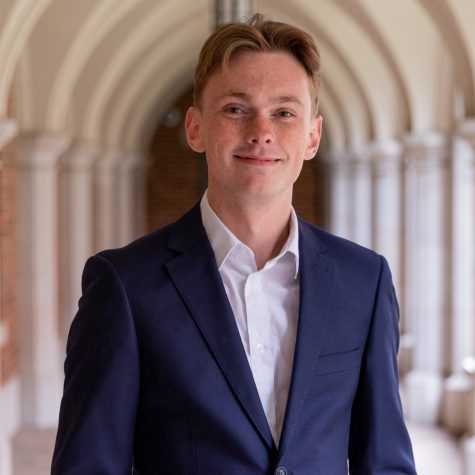CORRECTION: This piece was corrected on Sept. 22, 2023, at 6:10 p.m. CDT. It previously stated that Every Nation is a collection of evangelical, Baptist churches, but it is a collection of just evangelical churches.
Every Nation Campus Vanderbilt hosted a seminar with Dr. Rice Broocks, author of “God’s Not Dead: Evidence For God in an Age of Uncertainty,” in Langford Auditorium on Sept. 18.
ENC Vanderbilt is a campus ministry chapter of Every Nation, a “global family” of evangelical churches co-founded by Broocks. The event was advertised as “a dynamic, multimedia presentation exploring the evidence for the existence of God” and argued for belief in God on reasoning drawn from science, history and philosophy.
ENC Vanderbilt did not respond to The Hustler’s request for comment.
Broocks earned his doctorate degree in missiology from Fuller Theological Seminary and is a senior minister at Bethel World Outreach Church. He has authored several books, including “God’s Not Dead,” which was adapted into a controversial Christian film series in 2014.
At the event, Broocks was joined onstage by Dr. Ming Wang, an ophthalmologist whose career inspired a role in the first “God’s Not Dead” film and the upcoming Christian film “Sight.” Dr. Eric Hedin, an associate professor of astronomy and physics at Ball State University, also spoke at the event. He was investigated in 2014 for allegedly teaching intelligent design in an honors science seminar.
Broocks began by offering a disclaimer about what questions he would and would not seek to answer during the seminar.
“We’re here to present evidence, not proof,” Broocks said. “Could we be wrong? Of course we could be wrong.”
Hedin added that he believes his belief in God is simply an extension of his knowledge of science.
“When we’re presenting evidence that says natural causes are not sufficient, then it points to something supernatural,” Hedin said. “That’s a logical conclusion based on our knowledge of science.”
Wang emphasized that his experience as an ophthalmologist led him to his faith.
“My awareness of a creator came from my study of science,” Wang said. “All the cells involved are so intricate, and the chance for that to happen randomly, without willful design, is mathematically zero.”
Scientific consensus agrees that the human eye evolved naturally from simple, light-sensitive cells.
The seminar then turned to the origins of the universe and what its panelists interpreted as evidence of intelligent design. Aided by videos, Broocks argued that evidence of the Big Bang, a discrete beginning of the universe, implies something caused the universe to exist.
“Space and time itself had a beginning,” Broocks said. “If you’re going from absolutely nothing to something, now you’re getting into the area of volition, of some agent beyond the universe making a decision.”
Broocks described his view as a “cosmological argument,” a class of arguments that seek to demonstrate the existence of God by logical proof. The validity of cosmological arguments is disputed among scientists.
Hedin added that the fundamental constants of the universe are further evidence of intelligent design.
“We talk about fine-tuning,” Hedin said. “We see that the primitive physics and forces of nature are finely tuned in a way that allows us to exist.”
Broocks and Wang then shifted to questioning the complexity of DNA and the human body.
“They say that the human genome is like walking into a library,” Wang said. “It’s unbelievable in terms of complexity, which begs one question: How could such a complex system form randomly?”
Broocks added that he believes DNA is clear evidence of intelligent design.
“If we’re going to build any kind of system bordering on self awareness, that’s not going to happen without a lot of work going in and a lot of intelligence,” Broocks said. “Information always points to intelligence.”
Scientists disagree on exactly how nucleic acids arose, with most hypothesizing that they were either introduced on asteroids that struck Earth or that they were produced naturally by chemical reactions in a “primordial soup.” Many scientific bodies explicitly reject theories of intelligent design.
Lastly, the seminar touched on ethics, suggesting human morality is rooted in God’s existence.
“If there is no God, good and evil kind of disappear,” Broocks said. “We all know that good and evil are not illusions; they’re real.”
The event, which ended in a voluntary prayer, was well-received by students in attendance. Insung Kim, a senior, said he had not read the book but found the seminar compelling.
“I thought it was really great. I’ve been a lifelong Christian, and I was raised in a Christian home,” Kim said. “Overall, all of the arguments were pretty interesting.”
Miles Abney, a senior, said she appreciated the diversity of backgrounds among the event’s panelists.
“I enjoyed the variety of perspectives that they brought to the table,” Abney said. “Using a medical professional, someone from the pastoral realm of things and then someone that was more of a physicist was impactful.”



